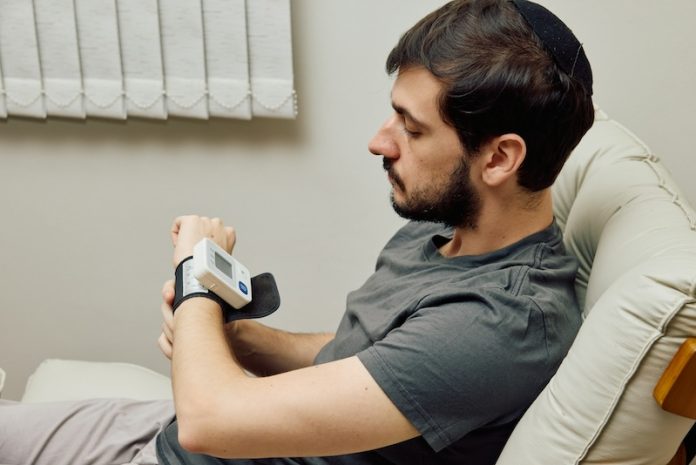
New research highlights how delaying or preventing high blood pressure, also known as hypertension, can significantly reduce the risk of stroke.
The study, published in the American Heart Association journal Stroke, found that the longer someone lives with high blood pressure, the higher their chances of having a stroke, even if they are taking medications to manage it.
High blood pressure is a condition where the force of blood against the walls of the arteries is consistently too high. It is a major risk factor for strokes and heart attacks. In adults, blood pressure is considered high if the top number (systolic) is 130 mmHg or more, or the bottom number (diastolic) is 80 mmHg or more.
Normal blood pressure is below 120/80 mmHg. Unfortunately, high blood pressure often develops without noticeable symptoms, making it crucial to monitor regularly.
The study followed over 27,000 adults in the United States for an average of 12 years. The participants had an average age of 65, and their blood pressure levels were monitored over time.
The findings revealed a clear pattern: the longer someone lived with hypertension, the higher their stroke risk and the more medications they needed to manage the condition.
People who had high blood pressure for up to five years were 31% more likely to have a stroke compared to those with normal blood pressure. For those who had hypertension for six to 20 years, the stroke risk increased to 50%, and for those living with it for over two decades, the risk soared to 67%.
These statistics held true even after researchers accounted for whether participants were taking blood pressure-lowering medications.
The study also found that people with long-term hypertension required more medications to control it. Those who had high blood pressure for 21 years or more were taking an average of 2.28 different types of blood pressure drugs, compared to 1.68 for people with hypertension for five years or less.
Dr. George Howard, who led the research, emphasized the importance of preventing high blood pressure in the first place. “Efforts to treat high blood pressure are crucial, but we need to focus more on preventing it from developing,” he said.
Preventing hypertension and the strokes it can cause not only improves health but also has significant social and economic benefits. Dr. Shawna Nesbitt, a hypertension specialist who was not involved in the study, pointed out that strokes can lead to lifelong disabilities.
This impacts the quality of life, limits a person’s ability to work, and places a heavy financial burden on families and the healthcare system.
“Treating and controlling blood pressure early saves more than the cost of medication—it prevents long-term disability and the challenges that come with stroke recovery,” she explained.
To reduce the risk of high blood pressure and its complications, the American Heart Association recommends several healthy lifestyle habits.
These include eating a nutritious diet rich in fruits, vegetables, and whole grains; maintaining a healthy weight; staying physically active; limiting alcohol; avoiding smoking; managing stress; and taking medications if prescribed.
This study underscores the importance of early detection and prevention of hypertension. Keeping blood pressure in a healthy range is not just about avoiding medications—it’s about protecting the brain and body from the long-term damage that can result from prolonged high blood pressure.
By addressing this silent but serious condition early, individuals can greatly reduce their chances of having a stroke and maintain a better quality of life as they age.
If you care about blood pressure, please read studies about unhealthy habits that could increase high blood pressure risk, and eating eggs in a healthy diet may reduce risks of diabetes, high blood pressure.
For more information about blood pressure, please see recent studies that early time-restricted eating could help improve blood pressure, and results showing 12 foods that lower blood pressure.
Copyright © 2024 Knowridge Science Report. All rights reserved.



